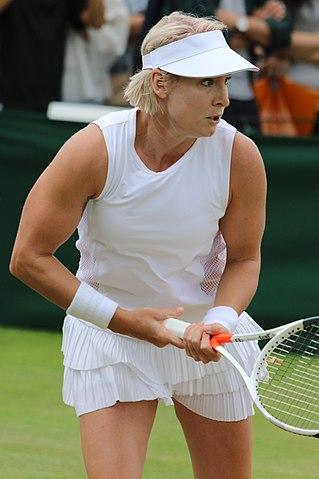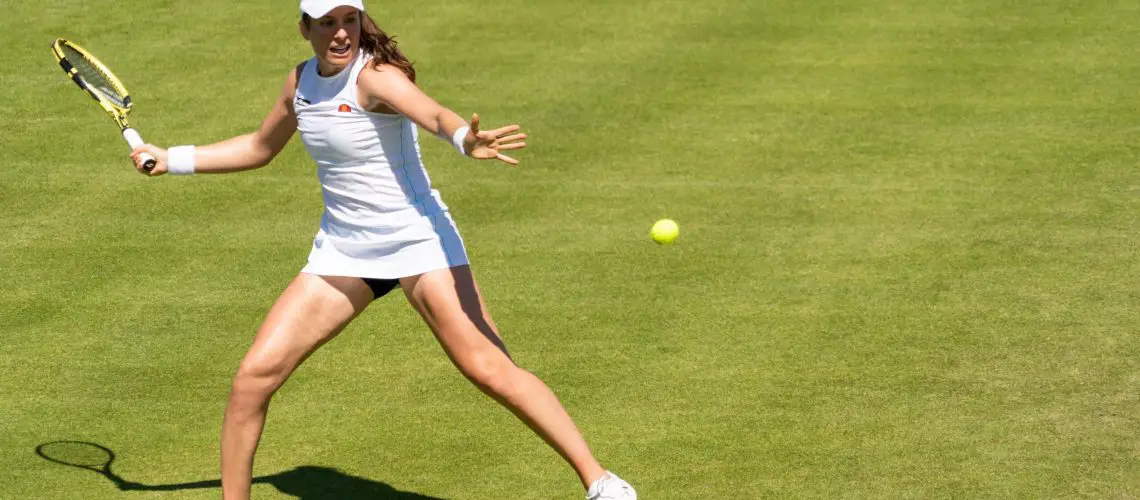We may earn money or products from the companies mentioned in this post.
A Quick Summary

This article examines the science, benefits, controversies, and regulations of grunting in tennis. It looks at famous examples of grunting in tennis history and recent innovations to reduce or eliminate it. It also discusses the advantages and disadvantages of grunting for players, and provides examples of famous players who have used it. Ultimately, it is up to each player to decide if they want to incorporate grunting into their game.
Why Do Tennis Players Grunt?

A Brief Overview
Tennis is a game of focus, precision, and skill It requires players to be fully in tune with their bodies and minds, ready to react swiftly to every move made by their opponent But amidst all the grunts, shrieks, and moans that fill the court during a match, one may wonder: why do tennis players grunt?
The Importance of Understanding This Phenomenon
The answer to this question can shed light on many aspects of the sport For one, it can help us better understand how players use sound as a tool to enhance their performance It can also reveal insights into the psychology behind competitive sports and how athletes manipulate their opponents’ perception of them Moreover, understanding grunting in tennis can also have practical applications for coaches and trainers looking to improve players’ techniques
Preview of Main Sections and Aspects
In this article, we will explore the science behind grunting in tennis – from its physiological benefits to its psychological effects on both players and spectators We will delve into the controversies surrounding this vocalization technique, including allegations of unsportsmanlike conduct and calls for greater regulation by governing bodies We will also examine some famous examples of grunters throughout tennis history and highlight some recent innovations aimed at reducing or eliminating grunting altogether
So buckle up your seatbelts as we take a deep dive into this intriguing phenomenon that has puzzled fans, athletes, and researchers alike for decades!
| Key Points | Description |
|---|---|
| Science behind grunting | Exploring the physiological benefits and psychological effects of grunting on tennis players and spectators. |
| Controversies & regulations | Discussing allegations of unsportsmanlike conduct, calls for greater regulation, and the role of governing bodies in addressing grunting. |
| Famous examples & innovations | Examining famous grunters throughout tennis history and highlighting recent innovations aimed at reducing or eliminating grunting. |
The Science Behind Grunting

Physiology of Grunting
When athletes engage in physical activities, they exert a tremendous amount of muscular force and require significant breathing control This is where grunting comes into play It is a natural response to the strenuous demands placed on the body during physical activity The act of grunting allows athletes to release air pressure from their lungs, helping them maintain their focus and performance during intense competition
During muscular exertion, the core muscles contract forcefully, leading to an increase in pressure within the chest cavity To counteract this pressure buildup, athletes exhale forcefully while simultaneously contracting their abdominal muscles, which results in a grunt This release of air helps to reduce the pressure in the chest cavity and allows for greater muscular exertion during physical activity
Psychological Aspects
Apart from its physiological benefits, grunting also has psychological advantages for athletes Grunting can help improve mental focus and concentration on the game, allowing athletes to perform at their best when it matters most
Additionally, grunting can serve as an intimidation factor towards opponents When players grunt loudly during a match or game, it can unsettle their opponents by indicating that they are fully committed and determined to win This psychological advantage can give players an edge over their competitors and boost their confidence levels
In conclusion, while some may view grunting as unnecessary or distracting behavior during athletic competitions, it serves a vital purpose both physiologically and psychologically for many athletes striving to perform at their best level possible
| Key Point | Description |
|---|---|
| Physiological Benefits | Grunting helps release air pressure and allows greater muscular exertion |
| Improves Mental Focus | Grunting can improve concentration during competition |
| Intimidation & Psychological Edge | Loud grunting can unsettle opponents and boost confidence |
Advantages and Disadvantages of Grunting in Tennis

Advantages for Players Who Grunt
Grunting is a common practice in tennis, and many players argue that it provides several benefits One of the main advantages is that grunting can increase power in strokes due to muscle tension release
When players grunt, they exhale forcefully, which helps to loosen up muscles and reduce tension This allows them to generate more power when hitting the ball, particularly on serves or groundstrokes The increased power can be especially useful in high-pressure situations where a player needs to hit a winner or force an error from their opponent
In addition to power, grunting has been shown to enhance timing and rhythm in gameplay By making a sound at the moment of impact with the ball, players can better synchronize their movements and improve their accuracy This can lead to more consistent shots and fewer unforced errors
Disadvantages for Players Who Grunt
While there are some advantages to grunting, there are also several disadvantages that should be considered One major downside is that grunting can be distracting for opponents and affect their performance
The loud noise made by a player’s grunt can disrupt their opponent’s concentration, making it harder for them to focus on the game This distraction can be especially problematic during crucial points or tight matches where every point counts
Beyond its effects on gameplay, grunting can also create negative public perception or sportsmanship concerns Some fans view excessive grunting as unsportsmanlike behavior or gamesmanship aimed at throwing off an opponent’s rhythm
In conclusion, while there are advantages and disadvantages associated with grunting in tennis, ultimately it comes down to personal preference and playing style Some players swear by it, while others prefer to play in silence As with any aspect of the game, what works best for one player may not work for another
| Key Point | Description |
|---|---|
| Personal Preference | Grunting in tennis ultimately depends on the individual player’s preference and playing style. |
| Advantages for Some Players | Some players may find benefits in grunting, such as increased power or improved timing and rhythm. |
| Disadvantages for Other Players | For others, grunting can be distracting or perceived negatively in terms of sportsmanship. |
Examples and Instances Involving Famous Tennis Players

Professional Players Known for Their Grunts
In the world of tennis, there are players who are known not just for their impressive skills on the court, but also for their loud grunts while playing One such player is Maria Sharapova, whose grunting has been a topic of discussion in the tennis community for years
Sharapova’s grunt has been recorded at over 100 decibels, which is equivalent to a chainsaw or jackhammer Some opponents have even complained that her grunting is a form of gamesmanship and gives her an unfair advantage
Another player known for his vocalization on the court is Rafael Nadal Nadal’s grunt is less pronounced than Sharapova’s, but it’s still audible enough to be noticed by fans and opponents alike
Impact on Their Careers
The public reaction to these players’ grunting has been mixed Some fans find it distracting and annoying, while others argue that it’s part of their natural game and shouldn’t be criticized
However, there may be some truth to the argument that grunting can give players an advantage A study published in the journal PLOS ONE found that when players were exposed to simulated crowd noise with varying levels of loudness, they hit fewer accurate shots when the noise was louder
This suggests that opponents may struggle more when playing against a player who grunts loudly during matches On the other hand, excessive grunting can also take a toll on a player’s own performance According to former professional tennis player Martina Navratilova, “Grunting takes energy away from hitting the ball”
Overall, whether you love it or hate it, there’s no denying that grunting has become a part of the tennis world While some players may use it to gain an advantage, it’s ultimately up to individual players to decide whether or not they want to incorporate this vocalization into their game
| Key Point | Description |
|---|---|
| Grunting part of tennis world | Grunting has become an accepted and recognized aspect of the sport |
| Potential advantage | Some players may use grunting to gain an advantage over their opponents |
| Individual decision | Ultimately, it’s up to each player to decide if they want to incorporate grunting into their game |
Useful Links

Why The Heck Do Tennis Players Grunt?
The Science of the Tennis Grunt
Why tennis players grunt
Grunting in Tennis: A History of Screaming on the Court
So Much Noise – Why Do Tennis Players Grunt?
Why do tennis players make so much grunting noise on the …
Why Do Tennis Players Grunt? – YouTube
The TRUTH behind Obnoxious Tennis Grunting – YouTube
Grunting in tennis – a problem that won’t go away
The power of grunting in tennis | A Moment of Science
Why tennis players grunt, and why you should, too!
Why Do Tennis Players Grunt?
Why do some female tennis players moan or grunt when …
Grunting tennis players: An unfair advantage?
Why Do Tennis Players Grunt – Is it a Form of Cheating?
Grunting and tennis: Why the case to ban women …
Why Do Tennis Players Grunt? Reasons That You Should …
Why Do Tennis Players Grunt? A Comprehensive …
Why Tennis players grunt so loudly during matches – HITC
Why Do Female Tennis Players Grunt So Much –






